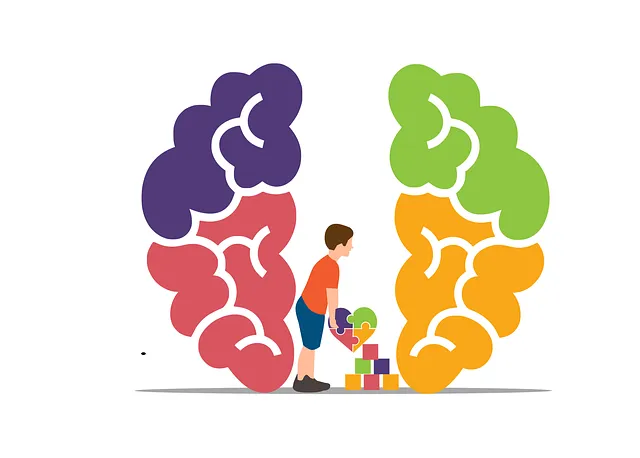Kaiser Permanente's Inpatient Mental Health Services in Denver are a vital resource for severe mental health conditions, offering specialized care through evidence-based practices. Combining medical, psychological, and therapeutic interventions, Kaiser empowers individuals to manage their mental health journeys, enhancing emotional well-being and quality of life. Their comprehensive approach includes advanced technology, holistic evaluations, cultural competency training, and resilience building programs, ensuring precise diagnoses tailored to individual needs, particularly for inpatient services in Denver. Kaiser leads in enhancing diagnostic accuracy through continuous tracking of misdiagnosis rates, patient satisfaction, and treatment efficacy, making it a top choice for mental health care in the city. (Does Kaiser have inpatient mental health Denver?)
Mental illness diagnosis accuracy is a critical aspect of patient care, especially at facilities like Kaiser’s Inpatient Mental Health Services in Denver. This article delves into understanding the unique challenges faced in accurately diagnosing mental health conditions and explores strategies to enhance diagnostic accuracy. We examine Kaiser’s approach, focusing on their efforts to improve outcomes for patients in Denver. Additionally, we discuss how measuring success through evaluation metrics can demonstrate the impact of these improved diagnosis efforts.
- Understanding Kaiser's Inpatient Mental Health Services in Denver
- Challenges in Diagnosing Mental Illness Accurately
- Strategies to Enhance Diagnosis Accuracy: Kaiser's Approach
- Measuring Success: Evaluating the Impact of Improved Diagnosis Efforts
Understanding Kaiser's Inpatient Mental Health Services in Denver

Kaiser’s Inpatient Mental Health Services in Denver play a pivotal role in addressing and treating severe mental health conditions. This healthcare provider offers specialized care within its inpatient facilities, designed to provide intensive support for individuals experiencing crisis or complex psychiatric disorders. The program focuses on a comprehensive approach to mental health treatment, encompassing various services tailored to individual needs.
Inpatient services at Kaiser Denver aim to stabilize patients, manage acute symptoms, and develop long-term strategies for emotional well-being promotion. Through these programs, patients have access to expert clinicians who employ evidence-based practices in depression prevention and stress management. By combining medical, psychological, and therapeutic interventions, Kaiser seeks to not only treat but also empower individuals to navigate their mental health journeys effectively, fostering improved emotional well-being and enhanced quality of life.
Challenges in Diagnosing Mental Illness Accurately

Diagnosing mental illness accurately can be a complex and challenging task due to several factors. One significant hurdle is the vast array of symptoms that can manifest across various disorders, often leading to misdiagnosis or delayed treatment. Additionally, mental health conditions frequently coexist with physical ailments, substance abuse, or other psychological problems, further complicating the diagnostic process. The diverse range of presentations, especially in an urban setting like Denver, where institutions like Kaiser offer inpatient mental health services, necessitates a nuanced approach.
Risk Management Planning for Mental Health Professionals plays a crucial role in addressing these challenges. By implementing evidence-based practices and continuous training on recognizing subtle symptoms, professionals can enhance their diagnostic accuracy. Boosting confidence through ongoing education and fostering inner strength development among healthcare providers empowers them to navigate complex cases effectively. These efforts are vital to ensuring patients receive appropriate care, as timely and accurate diagnosis is a cornerstone of successful treatment outcomes.
Strategies to Enhance Diagnosis Accuracy: Kaiser's Approach

At Kaiser, efforts to enhance mental illness diagnosis accuracy center around a multi-faceted approach that combines advanced technology with human expertise. They emphasize the importance of comprehensive evaluations, integrating psychological assessments with medical histories and physical examinations. This holistic method ensures that every patient receives a precise diagnosis, tailored to their unique needs.
One key strategy involves self-awareness exercises designed to help both patients and healthcare providers recognize subtleties in symptoms and behaviors. Additionally, Kaiser prioritizes Healthcare Provider Cultural Competency Training, fostering an environment where medical professionals are equipped to navigate the complexities of diverse patient backgrounds. Resilience building programs also play a significant role, empowering individuals to cope with challenges and contribute to overall mental wellness. For those seeking inpatient mental health services in Denver, Kaiser offers specialized care, leveraging these innovative strategies to improve diagnosis accuracy and foster better outcomes.
Measuring Success: Evaluating the Impact of Improved Diagnosis Efforts

Measuring the success of efforts to improve mental illness diagnosis accuracy is paramount. Organizations like Kaiser Permanente’s inpatient mental health services in Denver offer valuable insights into this process. By evaluating patient outcomes, treatment efficacy, and provider feedback, they assess whether enhanced diagnostic tools and training are making a tangible difference. This includes tracking reductions in misdiagnosis rates, improvements in patient satisfaction, and the effectiveness of novel Stress Reduction Methods implemented to bolster inner strength development among individuals struggling with mental health issues. Additionally, Kaiser’s approach incorporates comprehensive Risk Management Planning for Mental Health Professionals, ensuring that healthcare providers are better equipped to handle complex cases and make more precise diagnoses. Such evaluations not only validate successful initiatives but also identify areas needing further improvement in the quest for higher diagnosis accuracy and ultimately, better patient care.
Kaiser’s efforts in improving mental illness diagnosis accuracy through its inpatient services in Denver offer a promising model for healthcare providers. By implementing structured assessment tools, enhancing clinical training, and promoting interdisciplinary collaboration, Kaiser aims to ensure more precise diagnoses. These strategies not only benefit patients by facilitating appropriate treatment plans but also have the potential to reduce stigma and improve overall mental health outcomes in the community. As shown through measured success indicators, such as reduced misdiagnosis rates and improved patient satisfaction, these initiatives could be a game-changer in navigating the complex landscape of mental healthcare.






